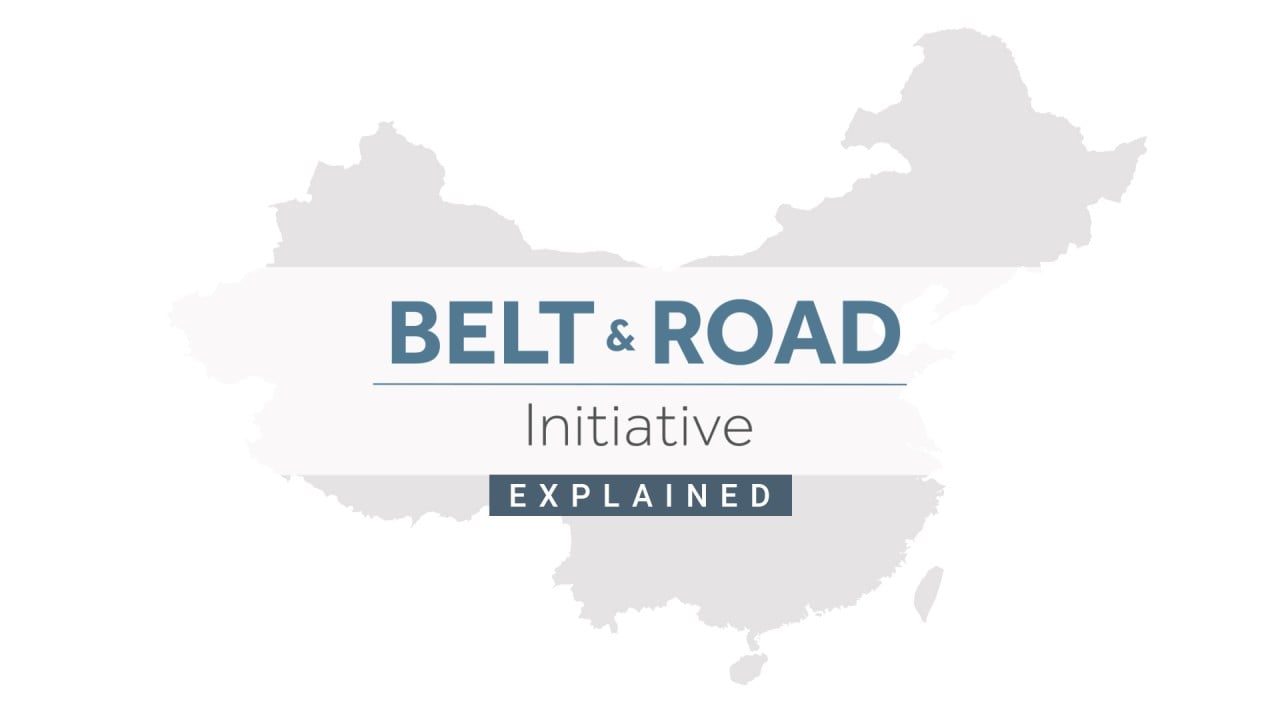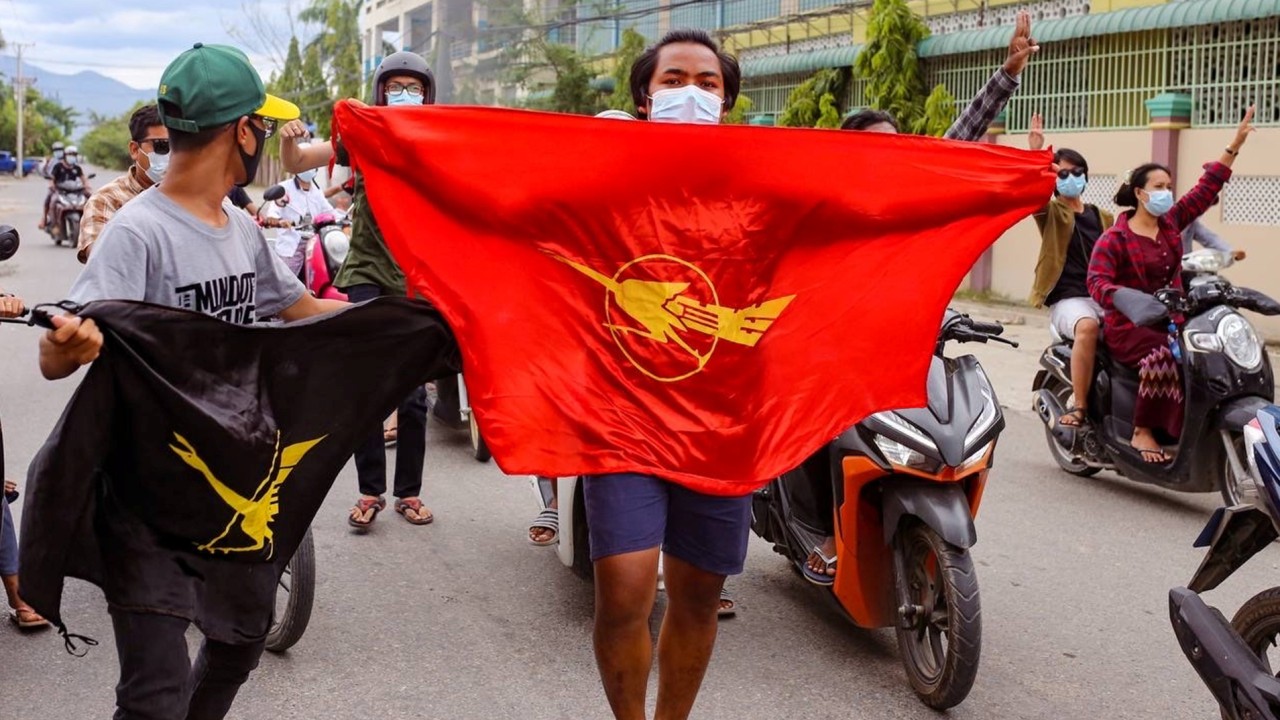
China announces new Myanmar trade route as it seeks to bolster ties with military junta
- The first test of the overland route follows a visit by Beijing’s special envoy and has been seen as a show of support after February’s coup
- China has been seeking to boost its economic and political influence across Southeast Asia via the Belt and Road Initiative
The China-Myanmar corridor, which is designed to link its vast interior with the Indian Ocean, could help boost trade and also increase Beijing’s influence in Myanmar after February’s coup left it largely isolated on the world stage.
Compared with traditional sea routes from eastern and southern China, the new link could save 20 to 22 days for a one-way journey, an unnamed official from Chengdu International Railway Port told state-owned Scol.com.cn.
It was the most convenient way to link China’s vast western region with the Indian Ocean, which could further facilitate trade with Southeast Asia, Europe, Africa, South Asia and the Middle East, the official said.
China evacuates thousands along Myanmar border to stop Covid-19
New rail links have been under construction between China and Southeast Asian neighbours such as Thailand and Laos. Beijing is also pushing for an economic corridor with Vietnam but has made little progress so far.
Last month saw the first trial of the China-Myanmar corridor, which saw a cargo of around 60 containers being sent by road from Yangon, a major Indian Ocean shipping hub, to Chin Shwe Haw on the border with China. It was sent on to Lincang in Yunnan province, from where it went by rail to Chengdu, the capital of Sichuan and a major trade hub in western China.
Yangon-based political analyst Khin Zaw Win said Yunnan had been trying for years to build itself up as a trade hub linking Southeast and South Asia to Sichuan and China’s other economic powerhouses.

02:35
Belt and Road Initiative explained
“The new trade route is the link and ocean outlet for industrial belt of west-central China,” he said.
However, given the poor domestic transport network and the turmoil in Myanmar, it might take some time before the trade route opened for business, said Yun Sun, an analyst of China-Myanmar relations at the Washington-based Stimson Centre.
“Myanmar doesn’t have the best transport system, so the portion from Yangon to Yunnan is going to be the challenge,” she said. “Given the political turmoil and the Covid situation in Myanmar, the trade route would inevitably be affected even if it is launched.”
Citing industry insiders, Chinese news portal Yicai.com reported that two further trials would be held soon and regular operations could start as early as next year.

On Tuesday, Beijing made a rare announcement that its special envoy for Asian affairs, Sun Guoxiang, had wrapped up an eight-day visit to Myanmar last week, where he met military ruler Min Aung Hlaing and other government ministers. The Chinese foreign ministry said Sun had “exchanged views with them on the political landscape and anti-pandemic cooperation in Myanmar”.
It was the first time a Chinese high-level official had visited Myanmar since the junta seized power on February 1 and declared a year-long state of emergency.
Myanmar’s foreign ministry said in a statement that China would transfer over US$6 million to fund 21 development projects in various areas including animal vaccines, culture, agriculture, science and disaster prevention.
As Myanmar’s biggest investor and a long-term supporter, China said its policy remains unaffected by the country’s domestic situation. It has expressed support for efforts by the Association of Southeast Asian Nations to resolve the political crisis.
China to provide Myanmar junta US$6m to fund development projects
Khin Zaw Win, in Yangon, said the timing of Sun’s visit was vital. “The worse the Myanmar situation, the more likely the junta will grasp at China’s ‘lifeline’,” he added.
Sampa Kundu, an assistant professor at Amity University in Uttar Pradesh, India, said Beijing was likely to continue its approach unless there was open opposition from Myanmar.
“China continues to ignore the political scenarios within a country where it has significant geostrategic and economic interests and Myanmar is one of them,” she said. “It is most likely that Beijing and Naypyidaw will take care of their relationship in future as well without much change.”
Yin Yihang, a fellow with the Taihe Institute, a Beijing think tank, said China could further cement China’s influence in Myanmar and Southeast Asia, a region that has emerged as a major forum for its rivalry with the United States.
Washington has significantly stepped up engagement with Southeast Asia recently, with high-level officials, including Vice-President Kamala Harris and Defence Secretary Lloyd Austin, visiting to strengthen ties with the region.

02:17
Myanmar military coup hampers fight against country’s biggest wave of Covid-19
“It is crucial for China to further advance its economic cooperation with Asean through projects like the new China-Myanmar corridor programme,” Yin said.
“China needs such new corridor projects to maintain its traditional friendly relations with Myanmar, and to prevent Myanmar from turning to other countries in the belief that China no longer supports it.”

